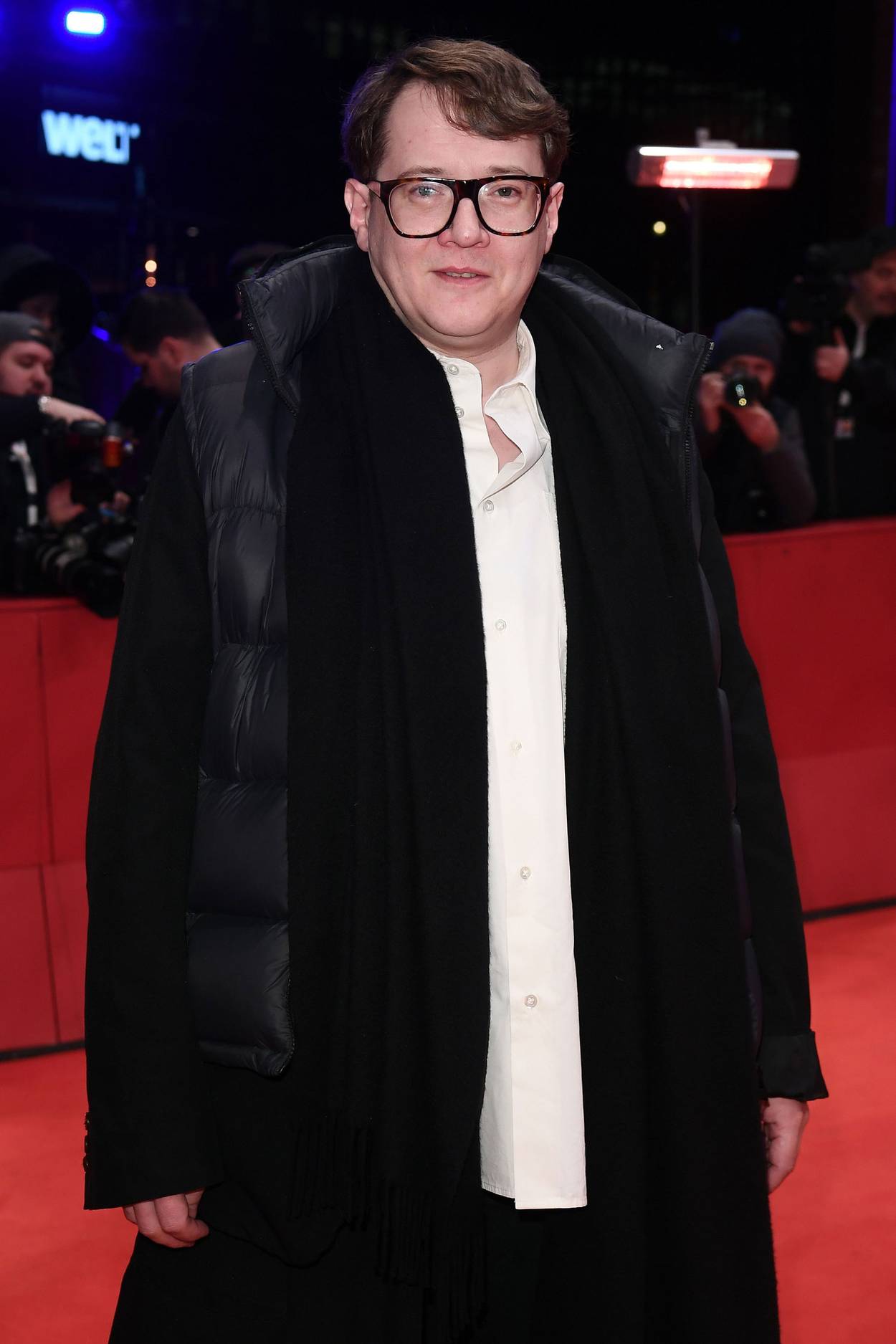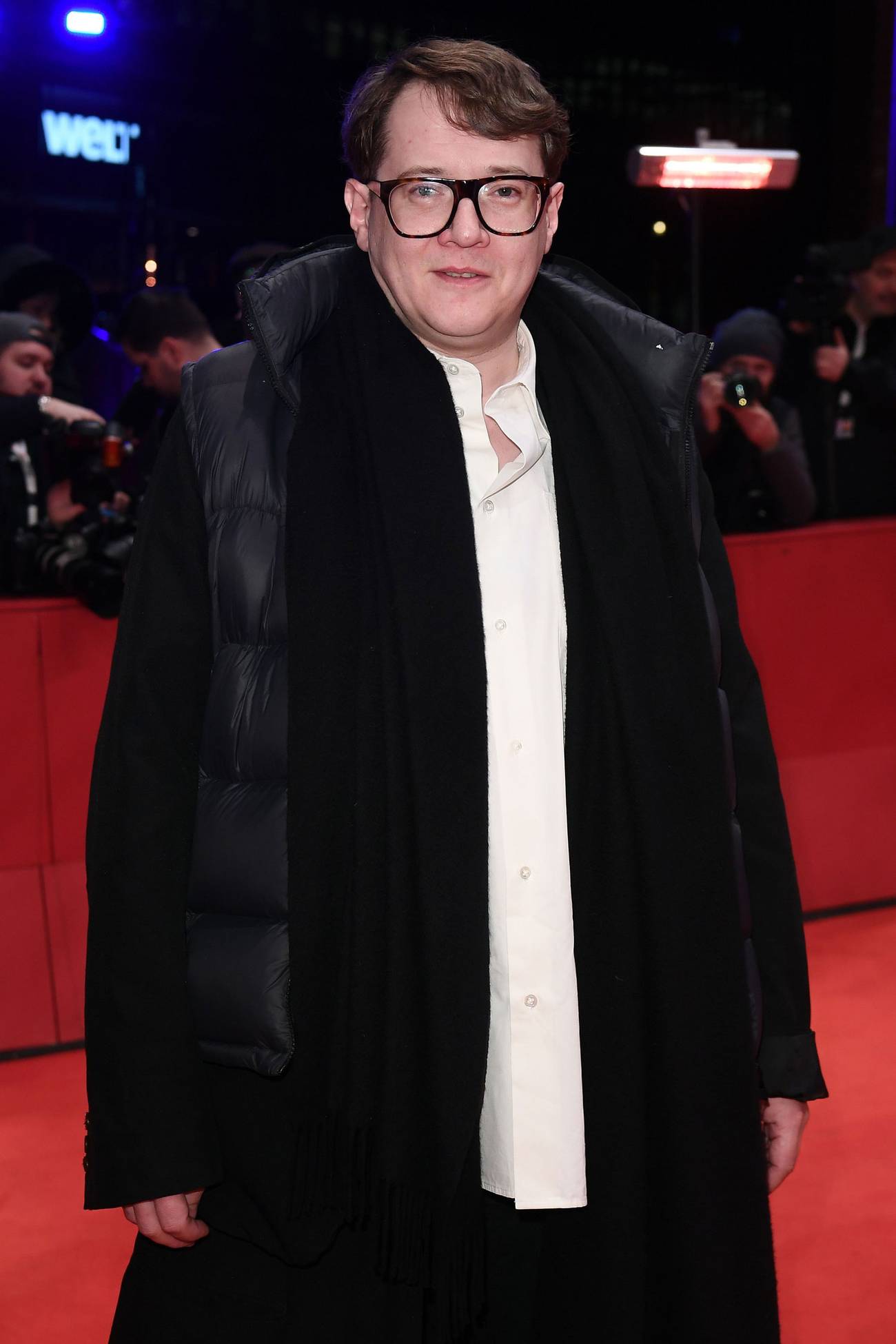The surreal and divisive three-year saga of Russian filmmaker Ilya Khrazhanovsky’s tenure as the artistic director of the Babyn Yar Memorial Foundation (BYMF) in Kyiv has come to an abrupt and (appropriately) dramatic end. Earlier this week, Khrazhanovsky offered his resignation from the post after the Ukrainian Security Services publicly opened a case against Khrazhanovsky’s patron, the Russian Israeli banker Mikhail Fridman. Ukrainian critics of the project have long alleged that money Fridman (and several other businessmen who hold Russian citizenship) had pledged for the construction of the Babyn Yar memorial was a liability given that Fridman’s fortune was held in Russia and thus under the prerogative of Putin.
Khrazhanovsky is known for his transgressive cinematic experimentation, as well as for his film cycle DAU, an obsessive and grandiloquent yearslong quest to create a biopic of the life of Soviet theoretical physicist Lev Landau. After many years of filming in the eastern Ukrainian city of Kharkiv, Khrazhanovsky premiered the art house version of DAU in Paris in 2019 to tremendous bemusement and acclaim in an epic, monthlong art world party bacchanal—one that left many observers wondering if he had the sober temperament required for running an institution dedicated to commemorating the Holocaust.
When they first appointed Khrazhanovsky in 2019, the supervisory board of the BYMF was criticized for allowing such a divisive and flamboyant artist to take up the post. His tenure has since been marked by continuous debates and scandals within Ukrainian civil society. Much of that criticism was based on the fact that Khrazhanovsky is a Russian citizen and thus seen—rightly or wrongly—as a Trojan horse for Russian influence operations. Though he continually denied such charges and pointed to his family roots in Ukraine as well as commitment to the role, Khrazhanovsky’s hedonistic lifestyle and haughty personality did little to soothe his critics. Still, he oversaw a successful 80th anniversary commemoration of the Babyn Yar massacre (which was attended by three presidents) and oversaw the erection of some aesthetically interesting commemorative structures on the grounds of the foundation, which was hit by a Russian rocket during the first month of the war.
The Babyn Yar Memorial Foundation—which oversees the memorials to the Jews murdered during the “Holocaust by Bullets”—was in the midst of building a large memorial and museum at the site of the massacre when Russia commenced its full-scale invasion of Ukraine. The museum was set to be the last major memorial to the Holocaust erected in the lifetimes of the last living survivors, but the Russian war against Kyiv derailed construction plans.
More by Vladislav Davidzon
Khrazhanovsky’s resignation is tied directly to the announcement of criminal proceedings against Fridman, a Russian and Israeli businessman who was born in Ukraine, for allegedly providing “material and technical assistance” to the Russian army and military industrial complex. Fridman is in serious trouble. The United States Treasury Department imposed sanctions against Fridman last month, a year after he was sanctioned by the British government and European Union. According to The Wall Street Journal, Fridman reportedly sought to give the Ukrainian war effort a billion dollars in exchange for sanctions relief—a sort of get-out-of-jail-free card. He currently faces an eight-year prison sentence in Ukraine, but given that he is already under house arrest in London, he is almost certainly not going to be returning to Ukraine to face charges.
Of the four Jewish businessmen who funded the Babyn Yar Memorial Foundation, only Viktor Pinchuk, a Ukrainian billionaire, is still involved and in good graces with the government in Kyiv. German Khan, a sanctioned partner of Fridman, has publicly cut ties (and losses) and returned to Russia, while Pavel Fuks is also suspected of large-scale fraud, and was reportedly forced by Russian intelligence agents to pay thugs in eastern Ukraine to paint swastikas around Kharkiv in order to create a pretext for the Russian “de-Nazification” efforts.
And so, predictably, this whole unhappy and theatrical saga with the Babyn Yar Memorial Foundation concludes as it began: with recriminations and hand-wringing in the Ukrainian press and social media, and with the future of the memorial remaining an open question. For Khrazhanovsky, meanwhile, the future looks brighter. When I spoke to him this past summer at the Cannes Film Festival, he informed me that he is currently in the midst of editing a final version of his great and unfinished film cycle about Landau.

